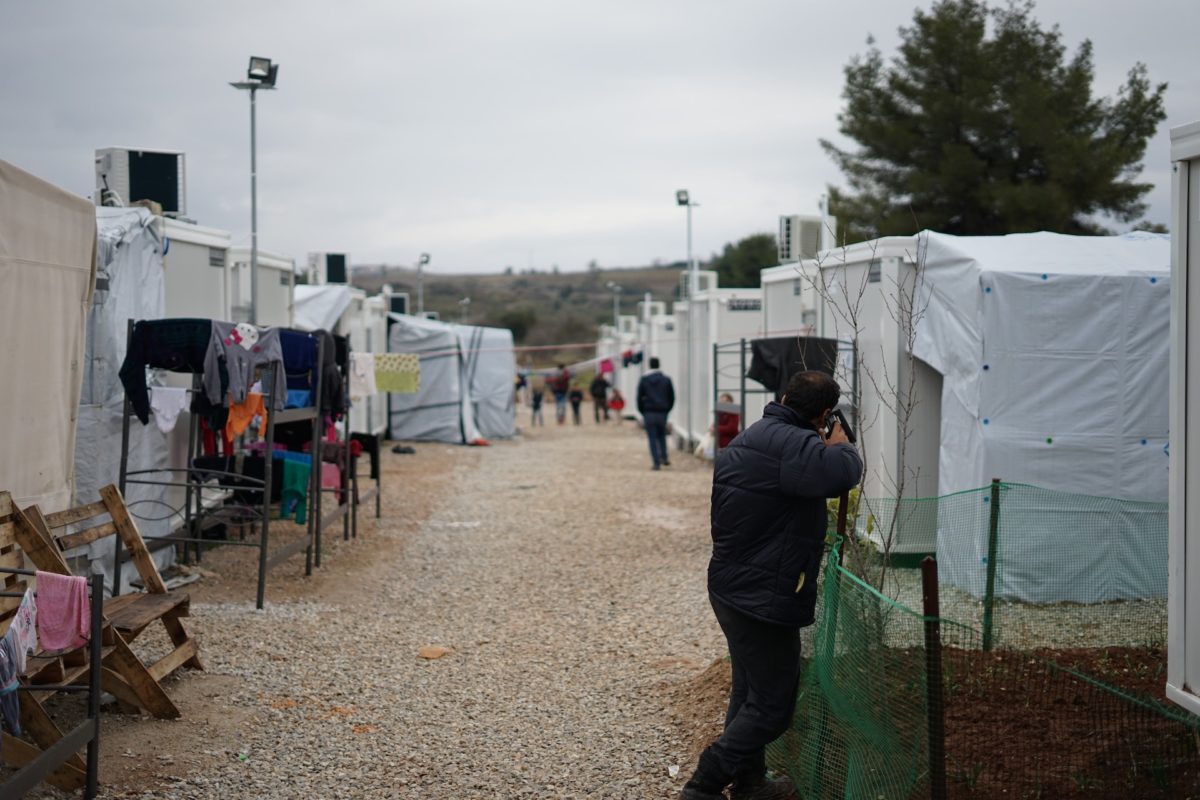The anti-trafficking film Dangerous Hope[1] tells the story of forcibly displaced people in Nigeria who must stay alerted to fend off human traffickers or end up in worse conditions. This film is an important contribution to the fight against trafficking as migrant smugglers and human traffickers, like most transnational criminal syndicates, have continued to adapt their strategies to exploit people forced to flee their countries or communities. For this reason, all methods of increasing knowledge and awareness of human trafficking are necessary. Films typically provide a relatable and accessible means of engaging large sections of the population while entertaining them.
Supported by the United Nations Human Rights Commissioner for Refugees (UNHCR) in association with the National Agency for the Prohibition of Trafficking in Persons (NAPTIP), Dangerous Hope sheds light on the human trafficking problem in relation to forcibly displaced people. The film, directed by Judith Audu, premiered in Abuja on the 2nd of February. The event brought together the relevant stakeholders to reiterate the need for sustained commitment and rigorous awareness to combat trafficking in persons. The film paints a fictionalized account of a problem that robs forcibly displaced people of dignity and freedom, even as the world prepares to celebrate the 75th anniversary of the Universal Declaration of Human Rights this year.
The authenticity of the experiences depicted in the film draws from the cast of actual Cameroonian refugees to depict the lived experiences of their fellow nationals who fled to Nigeria for protection. The film exposes, also, the ways in which forcibly displaced people are targeted by human trafficking networks by indicating how their vulnerabilities are exploited and how the novelty of their new environment is so often used against them.
Thematically, Dangerous Hope communicates a timely and relatable message. Which is that, protecting forcibly displaced people requires an understanding of the multiple layers of harm they contend with and how migration policies and processes define their lives. Faced with the regrettable reality of forced displacement, asylum-seekers, refugees and stateless people can be anxious about rebuilding their lives or seeing to their own needs. Human traffickers, smugglers and other bad actors exploit this anxiety, as they criminally subject their victims towards various forms of exploitation and cruelty.
Before now, Nigerian films dealing with the topic of human trafficking have mostly focused on the relationship between poverty and forced prostitution. Nollywood films such as Oloture[2] or Shanty Town depict the cruelty of debt bondage and how anxieties over economic mobility enable trafficking syndicates to recruit and traffic young women and girls. Given that sex trafficking accounts for the largest number of trafficked people in Nigeria, the above theme appears justified.
That said, Dangerous Hope introduces a fresh perspective to the problem of trafficking in Nigeria, which is to examine how trafficking affects those who are already experiencing displacement. In essence, as people make life-threatening journeys in search of safety, traffickers actively seek ways to take advantage of them.
In Dangerous Hope, we are therefore introduced to a more nuanced and complex perspective on trafficking. The opening scene briefly captures how asylum-seekers, IDPs and refugees embark on the same migration route in search of protection. These routes are also used by irregular or economic migrants. Each of these groups of migrants is therefore at risk of encountering smugglers or traffickers along the way or at their new shelter. In the film, a group of Cameroonian refugees begins to encounter traffickers as they attempt to settle under UNHCR’s protection in Ogoja, Cross Rivers State, Nigeria. These traffickers however hide their evil intentions while cunningly empathizing with their targeted victims. For example, we see a cloth seller who initially offers a young Cameroonian refugee clothes for free, while flattering her with words. Soon, he proceeds to offer her cash in exchange for sexual intercourse and eventually kills her to harvest her organs. At the settlement also are forcibly displaced migrants who enrol into skills acquisition programmes and eventually begin to rebuild their lives bit by bit. In a sense, the film also warns of the dangers of seeking economic mobility too desperately within a community one rarely knows. At the end of the film, one comes to see that human trafficking is not always brutal or confrontational in its earlier stages. Traffickers may initially disguise themselves as empathetic or caring adults who intend to ameliorate the suffering of those experiencing forcible migration. However, they eventually work their way around their victims by deploying different forms of deception to gain trust before they strike. But this is where awareness and community alertness come in as important sensitization tools. Informed communities provide better safeguards against human trafficking activities, as they are equipped to spot and report suspicious activities. In presenting a vivid picture of the perils of forced migration, the filmmaker and the UN Refugee Agency have delivered a strong material that teaches, as well as entertains.
[1] UNHCR-Nigeria, “Premiere of “Dangerous Hope” – an Anti-Human Trafficking Film” (Youtube, 2 February 2023) < https://www.youtube.com/watch?v=3sNfJ2INIE4 > accessed 10 February 2023.
[2] Mitterand M. Okorie, “Violence and sex trafficking in the film ‘Oloture’: A gendered perspective.” In De Franceschi, L and Perniola, I. (Eds.) Migrazioni, cittadinanze, inclusivita. (2022): 375-390. Tab edizioni: Rome.
